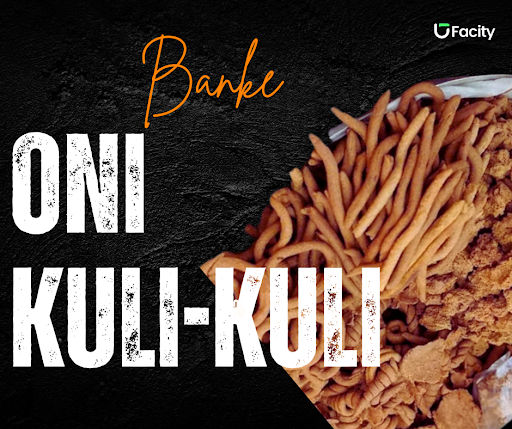“I’m so famished right now! This book I’m reading doesn’t even make sense because of how hungry I am,” Banke muttered to herself as she rummaged through her provision box. With only a few items left like milk, sugar and butter. She knew her only option was to soak garri (cassava flakes). Leaving her dormitory, Banke headed towards the small kiosk in the hostel.
“Good afternoon! I want to buy groundnuts ooo,” Banke called out to the attendant as she approached the kiosk.
“Good afternoon. We don’t have groundnuts right now, but you can come back in the evening,” the attendant replied casually.
“Evening ke? That’s too late na,” Banke retorted, feeling disappointed. The attendant just shrugged, offering no further explanation. Hungry, Banke turned and left the kiosk. Leaving the hostel wasn’t part of her plans, so she decided to call her roommate, Chioma, to see if she was on her way back.
“Hello, Chioma, how are you? Where are you?” Banke asked anxiously.
“I’m fine. What about you? I’m on my way to the hostel. Is there a problem?” Chioma responded.
“I’m very hungry,” Banke confessed. “Can you help me buy groundnuts?”
“Sure, I’m in front of Mummy Quddus’s store. Let me check for you,” Chioma replied. After a few minutes, Chioma called back.
“Banke, Mummy Quddus doesn’t have groundnuts, but she has kuli-kuli (Traditional ground-nut chips ) . Should I buy it for you?” Chioma asked. At the mention of kuli-kuli, memories of Banke’s late grandma flooded her mind. With a nostalgic smile, she agreed to the kuli-kuli, grateful for Chioma’s help.
After what felt like an eternity, Chioma entered the room.
“Welcome back, Chioma! How was class? Where’s my kuli-kuli? I’ve already soaked my garri, sorry for rushing you, I’m just so hungry,” Banke exclaimed as Chioma approached.
Chioma chuckled. “I can see! Here you go,” she said, handing the kuli-kuli over to her.
“Thanks,” Banke replied, eagerly tearing the nylon with her teeth. But as she took her first bite, disappointment washed over her. The kuli-kuli didn’t taste as good as she had hoped but that wasn’t the concern right now she needed to settle her growling belly.
Later at night, Banke couldn’t help but compare the Kuli-Kuli she brought to the delicious kuli-kuli her late grandmother used to make. “That kuli-kuli didn’t taste right,” Banke thought to herself. “My grandmother made it so much better, and I’m sure with how she taught me, I could even make a better batch myself.”
As Banke continued to nibble on the less-than-satisfying kuli-kuli, her mind began to churn with thoughts. “Should I consider frying kuli-kuli as a snack for myself?”. The idea grew more appealing with each passing moment.
What began as a personal craving for a quick satisfying snack evolved into something much more significant for Banke. As she experimented with frying her own kuli-kuli and refining her recipe, the delicious traditional snacks spread like wildfire among her roommates and friends. Soon, her dormitory became a hub for tasty treats, with hostel mates flocking to get a taste of Banke’s homemade kuli-kuli to pair with Garri. Encouraged by the overwhelming response, Banke decided to take her snack business to the next level.
In her third year, Banke noticed the growing trend among her fellow students – a desire for healthy, on-the-go snacks. As the notion took hold in her mind, Banke’s entrepreneurial spirit sparked to life. She then began experimenting her Kuli-Kuli with different recipes, adding her own twist to the traditional snack and infusing it with new flavors. As Banke progressed through her academic journey, her business continued to grow. She expanded her target audience by selling her snacks to students beyond her hostel. She would give them a taste and afterwards persuade them to buy. She also leveraged on school organized functions to sell her snacks and even used online marketing. As her popularity grew, She became known as “Banke Oni Kuli-Kuli”.
Despite facing initial challenges and skepticism from some of her peers, Banke’s Kuli-Kuli quickly gained popularity among students. With their delicious taste and nutritious ingredients, they became a favorite snack option for busy students looking for a quick and healthy bite between classes.
By the time Banke reached her final year, her business had blossomed into a thriving enterprise where she had her own workspace within the campus. She had built a loyal customer base, hired a team of dedicated students, and even secured partnerships with local food stores.
What had started as a personal indulgence had blossomed into a thriving business venture for Banke. With her entrepreneurial spirit and dedication to quality, she had turned a simple snack into a beloved campus favorite, spreading joy and satisfaction with one crunchy bite at a time.
The power of entrepreneurship as an undergraduate lies in the ability to recognize and seize opportunities to create value within your immediate environment. As a student, you possess unique skills, talents, and perspectives that can be leveraged to address needs and solve problems. Whether it’s starting a small business, launching a creative project, or offering freelance services, entrepreneurship allows you to channel your passions and talents into tangible outcomes with this, you gain practical experience and financial independence.


